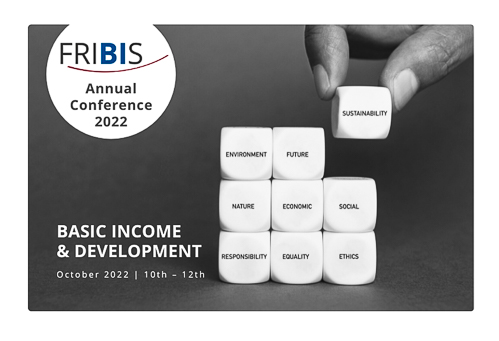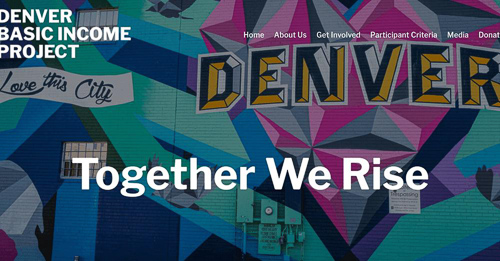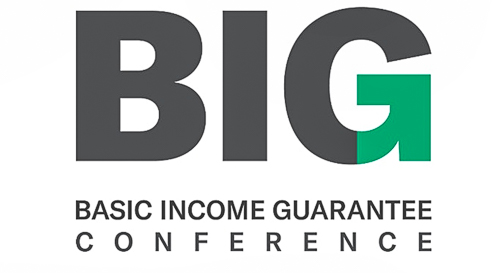
by Peter Knight | Aug 25, 2022 | News
Readers and BIEN members might be interested in a new book, IN THE BALANCE: The Case for a Universal Basic Income in South Africa and Beyond, which has just been published and is drawing good reviews.
It’s available from online retailers, New York University Press (for North America and Europe) and Witwatersrand University Press (for Africa). An open access PDF version can also be downloaded for free.
Here are a few excerpts from reviews:
“Hein Marais delivers a theoretically powerful, impressively documented, timely and urgent case for radical wealth redistribution …. Crucially, the book supports a basic income not as a policy fix, but as a far-reaching political and imaginative response to the steady collapse of a wage-centered social order. This is a book destined to have lasting influence.”
—Franco Barchiesi, Ohio State University; author of Precarious Liberation: Workers, the State, and Contested Social Citizenship in Post-apartheid South Africa
“If you have been searching for a way to clearly understand the concept of a Universal Basic Income (UBI), then this is the book that you have been waiting for.”
— Awande Buthelezi, coordinator for the #UBIGNOW Campaign and activist with the Climate Justice Charter Movement
“This book is a major contribution to our understanding of the possibility for policies to achieve more equitable levels of well-being in the contemporary political economy of South Africa and the world.”
– Peter B. Evans, Professor Emeritus, Department of Sociology, University of California, Berkeley
And here is a short description:
“As jobs disappear, wages flat line and inequality grows, this timeous book presents a
compelling analysis of the need, conditions and possibilities for a universal basic income (UBI) in South Africa and globally.
Paid work is an increasingly fragile and unattainable basis for dignified life. This
predicament, deepened by the COVID-19 pandemic, is sparking urgent debates
about alternatives such as a universal basic income (UBI). Highly topical and
distinctive in its approach, In the Balance: The Case for a Universal Basic Income in
South Africa and Beyond is the most rounded and up-to-date examination yet of the
need and prospects for a UBI in a global South setting such as South Africa.
Hein Marais casts the debate about a UBI in the wider context of the dispossessing
pressures of capitalism and the onrushing turmoil of global warming, pandemics and
social upheaval. Marais surveys the meaning, history and appeal of a UBI before even
handedly weighing the case for and against such an intervention.
The book explores the vexing questions a UBI raises about the relationship of paid
work to social rights, about prevailing notions of entitlement and dependency, and the
role of the state in contemporary capitalism. Along with cost estimates for different
versions of a basic income in South Africa, it discusses financing options and lays out the social, economic and political implications. This incisive new book advances both our theoretical and practical understanding of the prospects for a UBI.”

by Guest Contributor | May 16, 2022 | Opinion
On March 9th, 48.56 percent of Korean people voted for Yoon Seok-yeol of the People Power Party which won only 0.7 percent more compared to 47.83% for Lee Jae-myung who pledged to implement basic income. With less than 1 percent difference in his loss, there is a local election coming in two weeks and another general election in two years. Where will Korea’s basic income movement go after Lee Je-myeong ‘s defeat?
Yoon Suk-yeol can no longer ignore Universal Basic Income, and the world is on the verge of realizing basic income. Yoon Seok-yeol, who became the new owner of Cheongwadae (Blue House), cannot pass any legislation without the consent of the Democratic Party with 172 seats, 57 percent overall. HIs People Power Party only holds 110 seats which represent 36 percent. This will remain the case unless they get more seats in the upcoming general election in two years. On the contrary, it is also a story that the Democratic Party of Korea can legislate the basic income that Lee Jae-myung promised if he is elected as a member of parliament in the by-election.
I interviewed Oh Jun-Ho, who was the presidential candidate for the Basic Income Party about the difference between Lee Jae-myung’s basic income pledge and his.
Oh Jun-Ho: There are three differences between my UBI policy from Lee Jae-myung’s:
1) First of all, the amount of the UBI is different. We promised 650,000₩ (533$) per month, which can support enough basic need for a living in Korea but Candidate Lee Jae-myung offered a very low amount of 83,000 ₩ (68$) per month.
2) In order to raise the financial resources, I insisted on reforming the tax and tax system to solve the polarization of wealth, and to expand basic income through redistribution of wealth, but candidate Lee Jae-myung does not seem to redistribute wealth because he drew a line about raising taxes. He is weak on that point.
3) Compared to us, presenting universal basic income as a policy and pledge, candidate Lee kept it as a pledge but hid or made his choice ambiguous in the election. It was disappointing for those who supported basic income with Lee, saying, “If there is public consent, we can do it, but if not, we won’t” (as quoted by The Korea Economic Daily, Dec. 2nd, 2021). Conversely, this is also the reason why those disappointed with Lee’s basic income supported me, Oh Jun-Ho.
Limitations:
The election was only focused on both parties so there were no alternative policy debates. As a voter and candidate, there was no such place where I could talk about UBI. Since only both camps had fights and policy spaces were not open, it was difficult to inform us of alternatives by ourselves as minor and minority parties.
Nevertheless, because I was there, there could be a future alternative to basic income or a justification for basic income. Because I criticized Lee Jae-myung’s timid basic income and the attitude of the Justice Party and other political parties toward selective welfare. I was able to inform the public that basic income was justifiable a little. In addition, public voters who support basic income have been created.
Expectations:
Though the results of the vote did not appear to be significant due to the phenomenon of leaning toward both parties, it cannot be evaluated only in this election, and it will be evaluated in the long-term trend later. Even if the people did not support this time, positive perceptions must have grown, and I am optimistic that Korea will return to positive support for the subsequent movement in the next election.
Considering that we are a new party, one member of the National Assembly, and only a small number of members, I don’t think we had too few votes (0.05%). Since other parties with a lot more party members won fewer votes than us, there is still a task of expanding the organizations and the number of voters who supported us, and we have to solve it well to expand our support.
Under the Yoon Seok-yeol administration, it is unclear whether Lee Jae-myung or his supporters will be one who can lead UBI in Korea from now. However, Seoul, which held a hopeful and important election, has enough potential to ignite it again.
Local Elections:
Local governments themselves do not have tax rights, so they cannot collect and distribute taxes. We can’t talk at the national level. However, whether it is real estate or industry, there has been a problem that the common interests created within the common body have not been distributed, so we will talk about returning them to basic income, universal welfare, and universal services that must go to the majority in each province.
I also interviewed An Hyo-sang, the chair of BIKN about the election.
An Hyo-sang: We need time to think about evaluating the process and results of the presidential election. But we have the local election soon. So we quickly need to talk about it. From a broad viewpoint, we must think about the weak points and strong points we had.
We considered 2 viewpoints.
First, what conditions can BI have in its position before the election? Basic Income gained traction for implementation because of a confident and strong politician. Lee embraced the Basic Income idea as his election pledge. Since the base of BI movement is not strong, there was a very broad gap between the front line candidate Lee was based and where the basic Income movement is positioned. So after Candidate Lee was defeated, the bubble of basic income ideas that people enjoyed blew up.
We need to face the reality of where the basic Income movement is positioned. We will have to try to gain broad and strong support from the ordinary people step by step with education, campaigns, propagation, organizations, and so on.
Despite Lee’s defeat and still our weakness, his idea planted the seeds of the basic income idea worldwide which will be widespread someday. We will harvest the fruits of our effort. We need to take time to see these fruits.
Second, as a center of the Basic Income movement, the Basic Income Korean Network (BIKN) will have two directions for the local election.
1) We will deepen our theory of our basic Income because we need a stronger theory and legitimation in order to gain wide popular support.
2) We have Basic Income supporters without and with political preferences. Some politicians still support BI idea as his policy, especially at the local level. Academics and activist social movements still support the BI idea so we will try to link personalities, individuals, and groups who support BI.
Korea’s basic income movement, beginning with the 2007 presidential election pledges from the socialist party, has become widespread within just 15 years. According to Kanta Korea Research Company, 38.6 percent of the respondents said they were in favor of basic income, 52.3 percent did not know and 9 percent didn’t answer. 1,012 men and women aged 18 or older nationwide were targeted (Seoul Economy, Feb. 20, 2020).
The BIEN congress will be held again in Korea on Aug 24th-26th, 2023. The title is “Basic Income in Reality.” I expect the Basic Income Party to gain wide popularity in 17 cities with 19 candidates at the local election and the 2023 Korea BIEN Congress to draw attention worldwide so that it can lead a great success in the general election for Basic Income implementation.
Local elections will be held on June 1, in two weeks. Can the Democratic Party promote the universal basic income of the entire nation as a pledge in local elections?
Since Lee Jae Myoung is running for the MP, Lee’s election camp says ‘this is whether Lee ‘s life or death’ as former president Lee Myong bak was trying to kill Roh Moo-hyun, and he seems to be winning. But he doesn’t talk about BI in his pledges during the democratic party’s local elections as well. But the Basic Income Party does out front, promoting basic income in all cities with a UBI of $78 a month.
Where will Koreans raise their hands again, when Yoon Seok-youl refuses to work at Cheong Wa Dae (Blue House) given by them, but they started to work in Yongsan District all of sudden due to his private beliefs?
Lee Jae-myung’s basic income pledge was as follows below in the presidential election:
- Universal basic income for all citizens
- After the public debate of the Presidential Basic Income Committee, it will be implemented by collecting public opinion.
- Starting at 250,000₩ ($205) a year. A goal of 1,000,000₩ ($820) per year within the term by 2027
- Land profit dividends and carbon dividends
- Basic income is paid in local currency
- Basic income and allowances by target
- Basic income of 1 million₩ ($820) per year to young people aged 19-29 from 2023
- Expanding the scope of child and youth allowances (step-by-step expansion, until the age of 18 in 2027)
- Payment of seniority allowance
Written by: Mok Hwakyun (Moka)

by Peter Knight | May 8, 2022 | Events, News
Basic income has become the subject of a lively and controversial debate in politics, civil society and academia. By questioning the fundamental assumptions of our social interaction, it challenges us to redefine the way we want to live together. This year’s FRIBIS’ annual conference will be taking a closer look at the relationship between basic income and development ideas and the potential they hold for the challenges of both the present and the future.
FRIBIS is particularly – but by no means exclusively – looking forward to contributions that deal with the following topics:
• Ecologically sustainable development: What role can a UBI play in improving people’s economic living conditions while protecting the environment?
• Development cooperation and social justice: Could the function of a basic income be to render development cooperation more efficient, increasing equal opportunities and promoting redistribution from top to bottom?
• Basic income in (post-)conflict regions: What impact could the introduction of a UBI have in regions branded by resource conflicts and power struggles? Can a UBI support societies in their development towards more resilience and social peace?
• Proposals beyond the conference’s focus on development are also welcome.
The deadline for the call for papers, workshops, and student participation is May 31, 2022. Full details are available at the conference website.

by Guest Contributor | Apr 12, 2022 | News
In Denver Colorado, a cash distribution program targeting those who experience homelessness is closing in on fully launching. The Denver Basic Income Project (DBIP) seeks to give a basic income to individuals to demonstrate that recipients of direct cash payments are more likely to obtain stable housing, gain more opportunity for stable employment, and empower people to assert their dignity and agency while improving their lives and improve the lives of those around them. The project aims to implement and study methods of building a healthier society, grounded in the values of social justice, anti-poverty, anti-oppression, and self-determination.
Some cash payments have already begun under a soft launch to understand where improvements can be made in the structure and implementation of the study. This approach aims to ensure that the program is as effective as it possibly can be over the 12-month span the full launch will cover. The Graduate School of Social Work at the University of Denver will be the organization conducting the study of results, and multiple organizations in Denver will be assisting in the implementation of the program.
Mark Donovan, the project founder, says “Direct cash payments move toward eliminating wealth inequality and begin to build a healthier community here in Denver and hopefully we’ll create a model for other cities to follow.” DBIP is itself modeled on two successful projects based in Vancouver, British Columbia, and Stockton, California. Both the New Leaf Project in Vancouver, and the SEED project in Stockton showed positive effects on the lives of participants. In comparison to what the United States has currently implemented to help these people, “Our society can do better” says Donovan.
The Mayor of Denver, Michael B. Hancock, is in partnership with DBIP through Mayors for a Guaranteed Income, a network of Mayors throughout the U.S. dedicated to advocating for a guaranteed income. “The Denver Basic Income Project is an opportunity to explore how the philanthropic community and the private sector can augment public support for those living in poverty, particularly our unhoused neighbors, and extend that hand up to stability” said Hancock. Mayor Hancock is concerned about a variety of issues such as homelessness, disparity in opportunity, and a withering middle class because of a lack of equity in economic systems.
There has been a large amount of fundraising for the project that continues. DBIP is still accepting donations towards its goal of securing 7.8 million dollars. DBIP is also currently applying the lessons learned from its initial soft launch and strengthening itself and its relationship with the community, especially leaders and participants from Black, Indigenous, and People of Color (BIPOC) communities. Everything points to DBIP being an extremely promising endeavor worth paying attention to.
If you would like to read more about the Denver Basic Income Project you can read a recent guest column written by Mark Donovan for The Pulse Institute here.
Aaron Lamb, April 11, 2022






